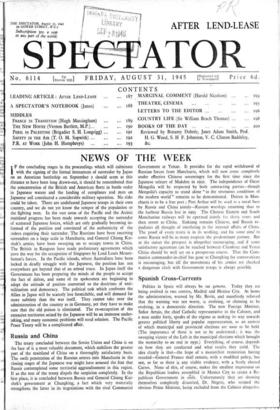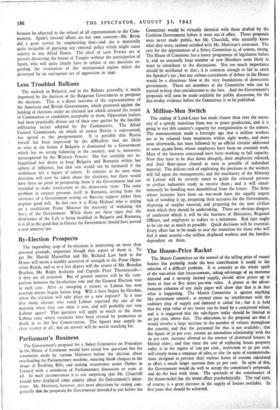Spanish Cross-Currents
Politics in Spain will always be sui generis. Today they are being evolved in two centres, Madrid and Mexico City. At home the administration, warned by Mr. Bevin, and manifestly relieved that the warning was not worse, is evolving, or claiming to be evolving, in a democratic direction. The new Foreign Minister, Seilor Artajo, the chief Catholic representative in the Cabinet, and a man under forty, speaks of the regime as making its way towards greater political liberty and popular representation, as an earnest of which municipal and provincial elections are soon to be held. (The importance of these is not to be underrated ; it was the sweeping victory of the Left in the municipal elections which brought the monarchy to an end in 1931.) Everything, of course, depends on how they are conducted and what results they yield. The idea clearly is that—the hope of a monarchist restoration having receded—General Franco shall remain, with a modified policy, but not, so far as there is any visible evidence, with a freely elected Cortes. None of this, of course, makes the smallest impression on the Republican leaders assembled in Mexico City to create a Re- publican Government in exile. Unfortunately they are showing themselves completely disunited, Dr. Negrin, who seemed the obvious Prime Minister, being excluded from the Cabinet altogethei because he objected to the refusal of all representation to the Com- munists. Spain's internal affairs are her own concern—Mr. Bevin did a great service by emphasising that—and she is materially quite incapable of pursuing any external policy which might cause anxiety to any Allied Power. The chief of such Powers are at present discussing the future of Tangier without the participation of Spain, who will quite clearly have to submit to any decisions re- garding the restoration of the international regime which she destroyed by an outrageous act of aggression in 1940.



























